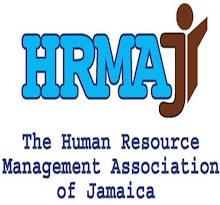However, in practice, employees behave differently; more in line with the words of Bob Marley who admonished us to not be the kind of people who "be bought nor sold." Companies who attempt to purchase employee motivation end up buying a bag of trouble.
It turns out that our knee-jerk response in such surveys is just that - a highly conditioned social norm. When offered either a cash or non-cash incentive we give the same answer as everyone else: "Show me the money." However, in practice, we aren't as motivated as we think. Research of New York City cab drivers on rainy afternoons showed that they would rather take time off than keep working, once they hit their target. This was true even though it's the time when they make their most money. In other words, their emotions get in the way of making as much as they can.
It's exactly what happens to commissioned salespeople. They become "income adjusted" according to CultureWorx, a human resources consulting firm. They earn the same amount of money by selling fewer products/services or earning more money by selling the same amount of products/services. By economic standards, this behaviour is irrational. Dr. Ran Kivetz explains that, for the typical person, cash incentives tend to be used to pay bills first, which makes the experience mundane. This makes it an inefficient motivator.
However, employees tell a different tale - incorrectly. In one experiment, a group motivated by a massage reported that they would have preferred the cash equivalent. Unknown to them, their performance was greater than the group incentivized by cash.
The takeaway? Asking employees what motivates them is a perilous business. Their behaviour doesn't match what they say.
In fact, money can be a demotivator - just try to motive someone to complete a task with an inexpensive gift rather than its cash equivalent. People can feel insulted when they believe that you are trying to buy their loyalty with little cash.
Given that risk, it's better for Human Resource practitioners to use the latest research when guiding executives. You may have to explain that the ROI on a $100 incentive is much higher if it's offered in terms of a non-monetary award. It has less of a chance of backfiring, and is more motivating.
Some argue - "But Francis, you don't know our employees!" You may have a point if you aren't paying them a living wage. However, in Jamaica we assume that what motivates a casual worker who is barely making ends meet also applies to a knowledge worker in your company. The research says differently, even if when we don't realize it.
Source:
Houlihan, T. (2011). Why cash is a less effective incentive. The Reward Systems Group
Boritz, J., Borthick, A., & Presslee, A. (2012). The Effects of Tangible Versus Cash Rewards in a Sales Tournament: A Field Experiment. Issues in Accounting Education, 27(4).
This article is a monthly contribution from a member of CaribHRForum. With over 600 practitioners, it’s the largest online network of HR professionals in the Caribbean enjoying CaribHR.Radio, CaribHRNet and CaribHRUpdates.



No comments:
Post a Comment